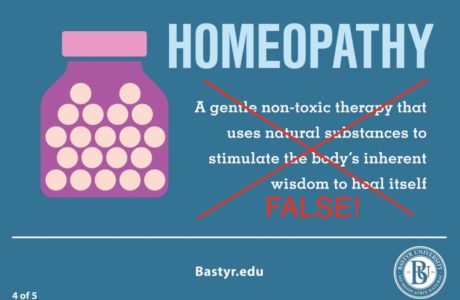“I am a naturopathic doctor.”
“Huh? A natur-o-what? Is that like a homeopathic doctor?”
“Oh, no. We are totally different than homeopaths. Naturopathic doctors are trained as primary care physicians in four-year post graduate naturopathic medical schools, just like medical doctors.”
When I was practicing as a licensed naturopath, I told lies about naturopathic education, clinical training, and professional affiliations that were just like the above exchange. I had such conversations frequently. I had it down packed. I knew the best answer to any question and how to explain who I was in the most flattering light.
“No, I am not a homeopath,” or
“Yes, I am a real doctor,” or
“No, not all naturopaths believe in homeopathy.”
In my former career as a naturopath, I hated when people equated homeopathy with naturopathy. Based on comments to posts in this blog, there is a good chance that many naturopaths, and naturopathic students, also feel that homeopathy is embarrassing.
It may be true that “not all naturopaths” incorporate homeopathy into their naturopathic practices, but, I strongly doubt this claim.
I have yet to meet a naturopath who has never dispensed a homeopathic remedy or allowed a remedy to be prescribed under his or her supervision. I have never seen a presentation or lecture by a naturopath discussing the scientific ridiculousness of homeopathy or debunking justifications for using homeopathic substances. I have never read an article, blog, or even a NatChat comment by a naturopath stating that homeopathy is nonsense and should be jettisoned from naturopathic education. I have never seen a naturopath reprimand another practitioner for his or her use of homeopathy, even when these remedies are used to treat serious illnesses like pyelonephritis or cancer.
I doubt that I ever will witness naturopaths ban together and attack homeopathy.
Naturopathy = homeopathy + TCM + chiropractic + x + y + z
Naturopathic has absorbed homeopathy, much like it has with any flavor of alternative medicine, such as chiropractic, Ayurvedic or traditional Chinese medicine. Whether younger generations of naturopaths like it or not, homeopathy is embedded within naturopathic, and it is there to stay.
In my “accredited” naturopathic education at Bastyr University, I was required to take three quarters of homeopathy. This equates to 88 lecture hours in homeopathic training.
I chose to attend Bastyr University, over the other accredited naturopathic colleges, due to its reputation for being more scientifically rigorous than the other naturopathic schools. I suppose that if Bastyr’s scientific rigor is measured by how many hours of homeopathy is taught then it’s more scientific than the other naturopathic schools. National College of Natural Medicine and University of Bridgeport both require 144 lecture hours in homeopathy. But this is not a good measure. Any homeopathy is anti-science and contaminates the whole system.
My three homeopathy courses at Bastyr were Homeopathy I, II and III. I pulled some text of course descriptions, objectives, competencies, and instructional philosophy from my homeopathy syllabi that are worth sharing:
HO 6300 Homeopathy I
Course Description
Homeopathy I begins with a short history of Samuel Hahnemann and the evolution of this revolutionary healing art. Next, we will learn the principles and philosophy of classical homeopathy, and introduce the tools and techniques we use in practice (homeopathic materia medica, the repertory, case taking, and an introduction to case analysis.)
Course objectives and competencies
Students will gain an understanding of homeopathic philosophy, a definition of health and disease, and the traditional role of homeopathy in naturopathic education and practice.
HO 6301 Homeopathy II
Course description
This is the second course in the homeopathic curriculum that consists of 3 required courses, 3 elective courses, 5 [elective] clinical shifts, and Mary’s Place a homeopathic outreach clinic dedicated to the treatment of homeless women. This course will cover homeopathic materia medica, as well as homeopathic case studies and other topics including case management. Teaching will be through case presentation and discussion of materia medica.
Instructional philosophy
As well as a therapeutic modality, homeopathy is a system of healing that comprised a philosophy of health and disease, a unique methodology for determining the healing properties, and a coherent set of principles and practices.
HO 6303 Homeopathy III
Course Description
Homeopathy III focuses on increasing our familiarity with the most widely indicated polycrest remedies, with emphasis on understanding remedies by families. For example, having studied remedies such as Calcarea carbonica, Natrum muriaticum and Sulphur, we can readily identify and understand remedies that combine qualities of the Natrums and Sulphurs, such as Natrum sulphuricum, Natrum carbonicum, etc. We will continue to increase our knowledge of case analysis and materia medica through weekly case assignments, case and remedy discussions. Discussions of remedy potency, repetition of the dose, the follow-up interview, homeopathic aggravations, and case management and the second prescription are also an integral part of Homeopathy III
Major Course Competencies
Students will understand the parameters used in assessing the effect of the homeopathic prescription, the possible positive and negative outcomes, and strategies to consider in patient management using homeopathy.
Re-reading these syllabi with a skeptical eye, I am fascinated by the use of buzzwords and phrases, which in my opinion, can be persuasive, are deceptive, and embody naturopathic medicine.
For example, the explanation of homeopathy as a “revolutionary healing art” in medicine implies homeopathy is novel, modern, and innovative. In fact, it is archaic and scientifically invalid.
I am also troubled about the following course objective in Homeopathy I: “Students will gain an understanding of homeopathic philosophy, a definition of health and disease, and the traditional role of homeopathy in naturopathic education and practice.”
Homeopathy is clearly deeply rooted in naturopathic. I fail to understand how naturopaths can dispute this fact in the face of Bastyr’s teaching documents or more simply from a bit of surfing on Google.
Given that all of the accredited naturopathic schools continue to spend far more time teaching homeopathy than pharmacology, (88 hours in homeopathy versus 55 hours in pharmacology for me) it is not surprising that homeopathy sidles into the minds of all naturopaths.
Faith-based Medicine
My first experience with homeopathy was as a student at Bastyr. I was lying in the grass one day, and a spider bit me! I watched with amazement over the next 24 hours how the bite became red, inflamed, itchy, and hot and tender.
When in class the next day, I asked my teacher how to naturopathically treat the bite.
She said, “Do you know what homeopathic remedy you need?
“No,” I said with curiosity, “what?”
“Apis!” she said. “It is for puncture wounds, like spider or ant bites or even bee stings, and it is good to use when the wound is hot, red, and tender.”
I had no idea what Apis was or how to take it, so I asked specific questions.
She explained, “Take Apis 30C, about 5 pellets at a time. Let them dissolve under your tongue. You will know when it is working because the itching will subside. You will know when you need to re-dose because the itching will start again. Do not eat or drink anything except water for 30 minutes after taking the remedy.”
I went straight to the Bastyr bookstore, where many homeopathic remedies were sold, and bought my first remedy, Apis 30C.
I loved this remedy. It worked! Just as my teacher predicted, the itching would subside for about 4 hours, and then I would need to re-dose. Over the next 24 hours, the redness, swelling, heat, and itching all faded away.
I excitedly reported the good news to my teacher days later, and she confirmed that this was the result of homeopathy. I was becoming a believer.
Over the next years in school and then in practice, I resorted to homeopathy every once in awhile when I did not know what else to do. This behavior is not unusual in naturopathic practice. When naturopaths are discussing difficult cases with each other, inevitably one will ask, “Have you tried homeopathy yet?” It’s as if naturopaths understand that we don’t all have the same degree of faith regarding homeopathy, but we also realize that it has remained in our curriculum for a reason, so we might as well use it.
A little homeopathy here, a little there. What’s the harm?
And as long as homeopathy is not being used independently, without the use of other naturopathic therapies or even prescription medication, what is the harm? It is just candy. (I once convinced a patient in the Bastyr teaching clinic to take a homeopathic remedy using this same line of reasoning.)
Yet, homeopathy is harmful. It is a fictitious medical ideology that, at its worst, prevents patients from seeking medical care in critical or urgent situations, and at its best, swindles patients out of time and money.
Sugarpills Forever
Naturopaths still defend homeopathy because they believe the practice of naturopathic medicine would suffer enormously without it.
The defense of homeopathy within the naturopathic profession is so robust, that Bastyr’s teaching clinic has a patient handout on homeopathy titled “What is Homeopathy?”
This is the first sentence of Bastyr’s homeopathy patient handout: “Homeopathy is a scientific method of cure, which follows laws based on far reaching holistic philosophy.”
The patient is deceived with the first seven words alone of the “What is Homeopathy?” handout. Homeopathy is not a scientific method of cure. The mere suggestion that homeopathy can cure anything is ludicrous and misleading, which is a failure to provide adequate informed consent.
Just as it begins, the handout also ends with a whopper: “Either way, homeopathy is one of the most cost effective and potent medicines available today.”
The argument that homeopathy is cost effective is laughable. While the cost of an actual remedy is typically less than $10, the cost of an appointment for a homeopathic intake with a naturopath can cost up to several hundred dollars per hour. I have seen naturopaths charge up to $500 per homeopathic intake for a new patient. And, of course, thinking homeopathy is cost effective fails to factor in the health costs of missed diagnoses, resulting in emergency or complex medical interventions.
Cost-effectiveness is determined mathematically with the simple equation of the cost of the medication divided by its effectiveness. Since the scientific community agrees that homeopathy is not effective, its effectiveness equals zero. You cannot divide by zero. The cost-effectiveness of homeopathy is an oxymoron.
The naturopathic community came out in full force to defend homeopathy during the recent FDA hearing regarding the regulation of homeopathic products. I was not surprised by the prominent naturopathic turnout in favor of the FDA not regulating homeopathic remedies. This large degree of support is further evidence of the profession’s desire to keep homeopathy in naturopathic practice and protected from regulatory oversight.
Sadly, and possibly to the dismay of the younger generation of naturopaths, not all naturopaths understand that science disproves homeopathy, and the use of this fake medicine is wasting money and risking patient lives.
Homeopathy is the biggest thorn in naturopaths’ sides. If the field wants to move forward as a medical profession, it must denounce homeopathy. But I don’t think this is ever going to happen.





Thank you for sharing your experiences, Britt. I’m coming here from Neurologica.
I have a friend from a good engineering school who, after a few decades in technology, went off the rails. It seemed to start with an interest in aromatherapy but then he decided that a good career path would be to move to Arizona and complete an ND at Southwest College of Naturopathic Medicine in Tempe. He’s been practicing as an ND for probably over a decade in Arizona. (I don’t think I’d care to visit that state without an emergency medical card in my wallet insisting I only be treated by real doctors!)
This post rings a bell because none of his web pages about the treatments offered in his office mention homeopathy. But then you get to the page with his training and such, the continuing education is chock full of homeopathic courses, along with other woo and some legit sounding courses. He treats kids and patients with diabetes. It scares me what damage he might be doing, despite the fact he probably has a great deal of real medical knowledge. He is really an extremely fine, compassionate individual. He would make a good real doctor or counselor.
I haven’t spoken to him in years. I don’t know how to talk to him, because of his profession. Your blog is helping me prepare for the day when I address this. I don’t know what approach I’ll take, but you are giving me some good information.
Thank you! I’m looking forward to further posts.
So, you have an old friend whom you know to be intelligent, logical and “an extremely fine, compassionate individual” and, yet, your mind is so unremittingly sealed shut that your only thought is – based on no knowledge, only conjecture, about homeopathy – to prove the guy wrong. A more intelligent person might approach your old friend with a little less prejudgment.
I, too, graduated from “a good engineering school” and, over the last 13 years of prescribing homeopathy to patients, I have seen such phenomenal miracles with the prescription of the correct homeopathic remedy that I believe, correctly used, it is one of the most powerful medicines that exists. It is infinitely more difficult to practice homeopathy well than to practice conventional medicine well. Homeopathy does not succumb to the usual paint-by-numbers diagnosis-to-prescription mechanism of conventional medicine. A good homeopath has to know the properties of the 2,000+ remedies and must possess superb pattern-recognition skills. I suggest, when you finally see your old friend, that you go in with an open mind, rather than with your guns blazing. You might learn something quite wonderful.
It is not the fault of homeopathy that science has not yet figured out how it works!
“The thing about smart people is that they seem like crazy people to dumb people.” ― Stephen Hawking
That sounds like very subjective evidence. Are you aware that the most thorough clinical trials on homeopathy show it is no better than placebo? Are you aware that it is *impossible* by any practical definition of the word (have to overthrow multiple fields of science…)
Well, I’m sure you are aware but are not willing to address these faults because your worldview revolves around acceptance of homeopathy.
Yes, I have 11 years’ worth of very subjective experience watching patients in my practice be cured with homeopathy of such varied pathologies as ulcerative colitis, rheumatoid arthritis, absence mal seizures, brown recluse spider bites, interstitial cystitis, Gilbert’s Disease, gastritis, dysautonomia and eczema – among many other serious, and less serious, diagnoses.
Travis, do tell me, how would you design a clinical trial to prove, or disprove, the efficacy of homeopathy?
The fact that you don’t appear to understand how a blinded, randomized study works pretty much says it all.
Dorothea, how exactly have you factually established that the ‘cures’ you believe were achevied in your clients was due to the homeopathic treatments they received? Be specific.
It is, I trust, on some basis other than a post hoc ergo propter hoc logical fallacy.
Trial design to prove or disprove homeopathic treatment:
Begin with a validated animal model of a non-self-limiting disease with an objective readout —one of the standard animal models used by drug companies to demonstrate efficacy of a small molecule or biologic drug (I suggest collagen-induced arthritis in mice, with the readout of efficacy being measurements of paw edema).
Randomly assign mice into treatment and control groups, and properly blind and control the study (the people administering the treatments and the people measuring paw edema should not be aware of what treatment the mice they’re handling received).
I suggest four cohorts: one which receives vehicle only (whatever diluent you’re using for succussion), a homeopathic preparation indicated for arthritis, a homeopathic treatment indicated for something other than arthritis or inflammation, and a standard of care SBM treatment for arthritis (I suggest methotrexate).
You might want to include a 5th and 6th cohort—mice are cheap—which receives methotrexate plus ‘indicated’ homeopathy and methotrexate plus non-indicated homeopathy.
Run the study, crunch the numbers.
Apparently homeopaths haven’t figured out how homeopathy works either. Not surprising, given that it does not. And a snake oil salesman shouting that it does, does not make it so.
By the way, your BS quote falsely attributed to Stephen Hawking was never spoken by him, nor was anything similar. Instead, here are some real quotes from him:
“If you believe in science, like I do, you believe that there are certain laws that are always obeyed.”
“I believe there are no questions that science can’t answer about a physical universe.”
“I believe the universe is governed by the laws of science.”
“Scientists have become the bearers of the torch of discovery in our quest for knowledge.”
“Science is increasingly answering questions that used to be the province of religion.”
“Science can lift people out of poverty and cure disease.”
Misquoting an authoritative figure, particularly one who vehemently disagrees with your hypothesis, is the last refuge of desperate scoundrels.
And snake oil peddlers.
I heard that quote attributed to Hawking by Bill Maher at his Commencement Address at UC Berkeley last December (@ 12:03).
https://www.youtube.com/watch?v=NP1wJvuA-Dk
If Hawking didn’t say it, the statement is – nonetheless – true.
I don’t believe it is true (and you claiming it is doesn’t make it so) but let’s suppose for a moment it is.
Does that mean that to “dumb” people (i.e. victims of naturopathic provider) other potentially dumber people (naturopathic providers) seem sane?
If so, it would explain a lot.
And of course, not surprisingly, you ignored all of Hawking’s other quotes — the ones that imply that Hawking would think your claims are nonsense. Given that you have held him up as a quotable authority, what does that now say about your claims?
So your source is a anti-vax comedian. Interesting.
Shameful that the clinical experience for this was targeted at homeless women. The people who were most like more in need of actual, real medical care than anyone else were shunted towards magic sugar pills.
That was the most enraging part for me too.
I totally agree! I also find Bastyr’s presence among the desperate to be odious, though if you look at the range of services they (Mary’s Place) provide, a bit further down the list there is an entry for “Medical Care” as well. Interesting that it’s considered a separate service from what’s provided by Bastyr. 😉
I’m beginning to notice far to often that not only my peers, but those in higher ranking positions at my university live these parallel lives. Where their education and career is built upon science, but their personal lives are separate and they see chiropractors, buy phony health and cosmetic products without blinking an eye. It boggles my mind how people who are truly passionate and successful in scientific careers can sit idly by, or have no real interest in debunking and discrediting pseudoscience in their daily lives. Personally, I don’t see those scientists as true scientists. True scientists keep their skeptic eyes open.
*facepalm* I didn’t think there could be anything worse than charging people money for homeopathy but here it is. Do they also give the women homeopathic food? Put a drop of soup in a bunch of water, shake it, dilute it 100 more times–far more nutritious than a bowl of undiluted allopathic soup!
What makes me really sad is that I’m sure the people working at that place are motivated by a genuine altruistic desire to help the needy. If only they could channel that instinct into something besides pushing magic candy to one of the most vulnerable, at-risk populations there is.
Thank you for your efforts Britt Marie Hermes. You are a truly courageous person.
Belief in homeopathy is certainly a positive acid test of delusional ignorance.
As others have said above, it is a remarkable phenomenon how otherwise educated people in responsible positions can be blind towards the impossibility of this nonsense.
The depth of delusion is as infinite as the dilution of the nostrums.
“Homeopaths Without Borders” is perhaps the lowest point in homeopathy’s history? I cannot imagine many more sinister public-health perils.
Is Heilpraktiker in DE the same as naturopath in US?
I do not believe they are quite the same thing, although similar. A Heilpraktiker cannot prescribe prescription medications. I am not sure if their services are covered by insurance. Homeopathic medicines are covered by insurance. A medical doctor can prescribe this, or a homeopath. I am not sure how many Heilpraktikers practice homeopathy. I see most of them advertise “psychotherapie.”
FWIW Dr. Edzard Ernst mentions in his new book, “A Scientist in Wonderland”, that the profession of Heilpraktiker was created by the Nazi regime in Germany as an entirely new profession of non-medically trained practitioners of alternative medicine, and that it is still very much in existence today. Interestingly, he writes that the Nazi policy of deliberately amalgamating alternative and conventional medicine bears many similarities to what is today known as “integrative medicine”. Proves, once again, that there is nothing new under the sun.
Yes I read this also and knew this history. But I don’t know about the current role of Heilpraktikers in DE. “Scientist in Wonderland” is a great book!
It is a superlative book that is accessible to all and should be read by all.
Thanks, Britt, for confirming something I learned as a non-naturopath years ago as I studied what naturopaths were saying and doing.
https://www.sciencebasedmedicine.org/naturopathy-and-science/
Great post.
Regarding “I doubt that I ever will witness naturopaths ban together and attack homeopathy”,
well, I know a naturopath — a good friend who I went to ND school with, who works now as a high school teacher — who tried, with “NAH”, Naturopaths Against Homeopathy:
https://sites.google.com/a/doingwellness.com/naturopaths-against-homeopathy/ .
Not a single person joined.
His whole family uses regular medicine, BTW.
I wrote and he sings the song “I shot the homeopath”, which is meant as a joke:
https://www.youtube.com/watch?v=uI61ynLsCk4
“I shot the homeopath, but I swear it was his simillimum.
I shot the homeopath, I first thought she needed Ledum […]
now I’m sure she needed Plumbum.”
-r.c.
Hi: I enjoy your posts. This is a technical question. I’m very interested in reading the article “Food as Medicine,” but when I click on the link (any of the several links that might take me to the article), I receive the following error message:
“Forbidden
You don’t have permission to access /food-as-medicine/ on this server.
Additionally, a 403 Forbidden error was encountered while trying to use an ErrorDocument to handle the request.”
Have other users experienced this problem? Doesn’t seem to be an issue with any other articles, only that one. Thanks for any assistance you (or your tech guru) can offer.
The above problem (re: access to article “Food as Medicine”) seems to have been resolved.
Great. I sometimes get distracted by school and life in general. Please feel free to email me directly at [email protected] for more immediate assistance, if necessary.
http://www.theanswerbank.co.uk/Phrases-and-Sayings/Question48079.html
I would be most interested to know how many hours are required in the study of placebo at Bastyr, or any other college of naturopathy you care to mention.
I was shocked to learn what little time was required in pharmacology.
As for homeopathic “remedies”, as much as I think we need to follow the proverbial money, I suspect that may apply to other substances. As evidence, I recently met a naturopath who graduated from one of the better colleges, but had never heard of Andrographis paniculata or its use in the treatment of colds and influenza. Of course, she knew Echinacea, which raises questions in my mind as to who provides funds for these colleges.
Lighthorse, I’m confused what you mean by “hours spent in the study of placebo”. You almost seem to be speaking as if placebo effects might actually be of therapeutic benefit, rather than creating a false appearance that treatment modalities that are demonstrably not effective (like reiki, homeopathy, acupuncture, etc.) actually do something. Is that the case?
An interview with the head pharmacist at Boiron, a leading manufacturer of homeopathic remedies:
http://www.rodalesorganiclife.com/wellbeing/homeopath-answers-skeptical-critics
I note taht nowhere in the interview does Christpher Merville offer any evidnece that homeopathy is effective as a treatment for illness or injury–in fact, he’s pretty explicit that his confidence in the efficacy of homeopathy is derived from personal anecdote alone. Surely by now even he must be aware that the plural of ‘anecdote’ isn’t ‘evidence’?
@jgc: My emphasis on the need to study placebo responses and, for that matter, nocebo responses, is that I very much doubt that students of naturopathy do, or to the extent that they could begin to appreciate how powerful such responses can be. Once a placebo effect wears off, the underlying symptoms return.
There are some rather dramatic examples in the early literature on the subject, such a cancer patient with a tumor the size of grapefruit that completely resolved, only to return and kill the patient when he realized the treatment he received was placebo. For better or worse, the attending physician and healthcare provider are a significant part of the placebo response.
Can you dientify that early study more concretely> I have trouble beleiving it’s factual, since by definition a placebo cannot result in actual physiologic changes in disease states (i.e., if it was a tumor, and it did shrink, it could not have been the result of a placebo effect.)
@JGC: I’ll try to dig that one up. I recall it from my early days as a medical writer around 36 years ago when my interest was largely the subject of cancer. Going back to old case reports, the first question to ask is how the tumor was measured.
@jgc: The fact Boiron is the world’s largest manufacturer of homeopathics is telling. Outside of investigative clinical trials, prescribing treatments of unestablished efficacy is unethical.
In the great days of the British Empire, a new commanding officer was sent to a jungle outpost to relieve the retiring colonel. After welcoming his replacement and showing the usual courtesies (gin and tonic, cucumber sandwiches etc.) that protocol decrees, the retiring colonel said, “You must meet my Adjutant, Captain Smithers, he’s my right-hand man, he’s really the strength of this office. His talent is simply boundless.”
Smithers was summoned and introduced to the new CO, who was surprised to meet a humpbacked, one eyed, toothless, hairless, scabbed and pockmarked specimen of humanity, a particularly unattractive man, less than three feet tall.
“Smithers, old man, tell your new CO about yourself.”
“Well, sir, I graduated with honours from Sandhurst, joined the regiment and won the Military Cross and Bar after three expeditions behind enemy lines. I’ve represented Great Britain in equestrian events and won a Silver Medal for boxing in the middleweight division of the Olympics. I have researched the history of…..”
Here the colonel interrupted, “Yes, yes, never mind that Smithers, he can find all that in your file.
Tell him about the day you told the witch doctor to screw off.”
This is old news, but some might like it for reference:
http://www.skepticnorth.com/2012/04/class-action-lawsuit-filed-against-homeopathy-manufacturer-boiron-and-shoppers-drug-mart/
I wholeheartedly agree with Briit’s analysis of homeopathy. It astounds me how many people don’t know what homeopathy is and how much it is embraced by CAM practitioners, but then again, many people think cleanses are healthy(except for those that you take for a colonoscopy which is nastier than the procedure). People are very trusting about CAM and they show a lot of unjustified skepticism towards Western-based or science-based medicine. There are CAM skeptics like Stephen Novella who believe that the popularity of CAM is more hype than reality and he might be right about that. I accept Dr.Marcia Angell’s explanation of CAM when should said that alternative medicine that works is simply called medicine!!!!